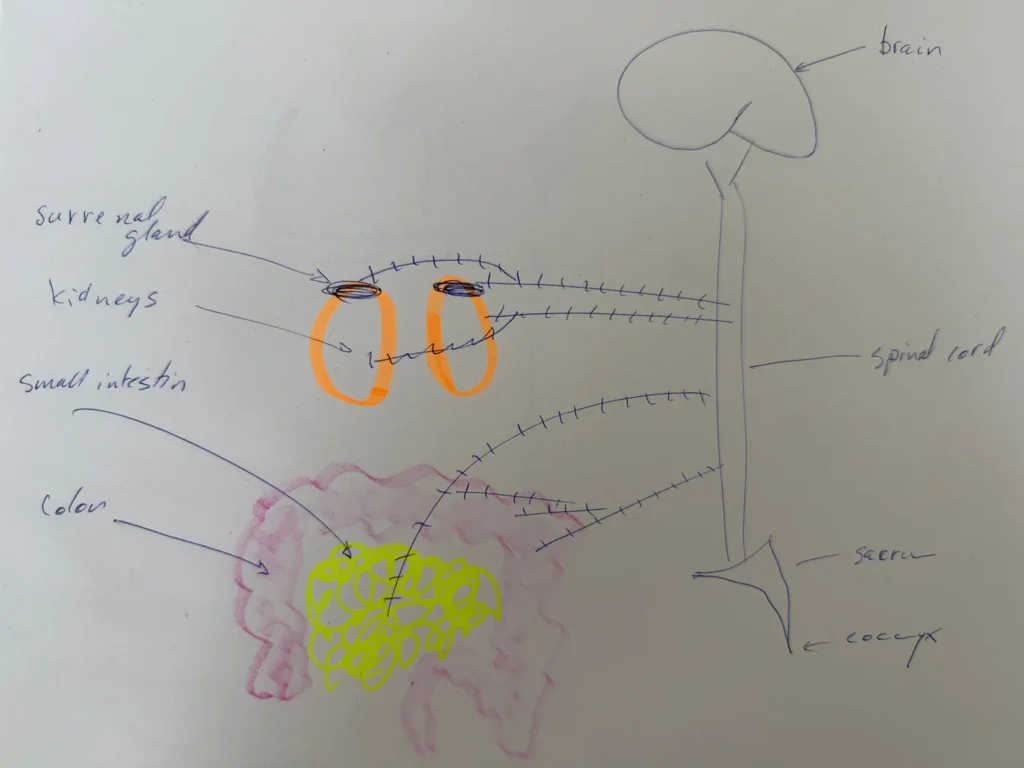THE AUTONOMIC NERVOUS SYSTEM — HOW THE BODY REGULATES ITSELF
If I say sweat, digest, or sleep on demand, chances are you won’t be able because all these actions, and others, are involuntary and controlled by your autonomic (or involuntary) nervous system.
Did you know your nervous system works on two levels?
On one hand, there’s the voluntary system, which allows you to move at will — lifting your arm, walking, talking. On the other, there’s the involuntary system, which works quietly in the background, regulating things you don’t consciously control: digestion, body temperature, heart rate, and sleep.

When the balance is off
Here’s one real-life example, a client comes to see me for lower back pain… but also struggles with chronic constipation. These two issues might seem unrelated at first, but they can actually be connected through the nervous system.
When the lower back (lumbar spine) lacks mobility, it can lead to overstimulation of the sympathetic nervous system — a state called sympathetic dominance. This has a direct impact on digestion, slowing everything down.
The natural movement of the intestines, called peristalsis, becomes less effective. Food moves more slowly through the digestive tract. By the time it reaches the colon, too much water is reabsorbed, leaving stools hard, full of air, dry, and difficult to pass.
Some people even notice that their stools float or contain excess gas — signs that digestion is sluggish or what we might call “over-processed.”
How osteopathy can help
In osteopathy, we take the time to look at how all parts of the body work together. Tension in the lower back doesn’t just affect muscles or bones — it can also impact how your nervous system functions and how your organs behave.
By restoring mobility to the lumbar spine, the pelvis, and other key areas connected to digestion, we help reduce excessive sympathetic stimulation, improve intestinal movement, and support healthier digestion.
Book an appointment in Calgary or Canmore
